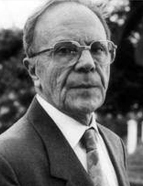

He also collaborated actively with several cultural and scientific institutions: the Sociedade Portuguesa de História da Civilização [the Portuguese Society for the History of Civilisation] (1949-53); the Centro de Estudos do Século XIX [Centre of 19th Century Studies] (1970), which he co-founded with Vitorino Nemésio, José-Augusto França and José Tengarrinha; he was member of the Board of the Fundação Calouste Gulbenkian [Calouste Gulbenkian Foundation], where he was responsible for the area of Science (1975-1995); Chair of the Centro de Estudos de História do Atlântico [Centre for the Study of the History of the Atlantic] (1992-97). He also wrote for numerous newspapers and journals (Diário de Lisboa, Análise Social, Vértice, Seara Nova, O Tempo and Modo, Annales, etc.), and translated some works.
From the 1950s onwards, in addition to his teaching, he began to publish historical studies, first on the Middle Ages, then briefly addressing the Modern Age to finally focus almost exclusively on the Portuguese 19th century, which constitutes the bulk of his work. What then, one may ask, prompted his interest in the 19th century, so chronologically remote from his initial studies? First of all, his studies tackled a wide range of the themes: beyond his interest in Portuguese intellectuals, as has already been mentioned, he was also interested in contemporary political thinking, historiography (with a special interest in Alexandre Herculano, Oliveira Martins, António Sérgio and Jaime Cortesão), innovation and technical implementation, emigration and demographics, the development and ambiance of Lisbon’s daily life, Sebastianism, the situation of the Portuguese woman, without forgetting themes such as «on the experience of 19th-century boredom» (1962).
These multiple interests are patent in another work that fell under his supervision and to which his name is indissociable, thus projecting him far beyond the academic world. The work in question was, of course, the Dicionário de história de Portugal (DHP) [Dictionary of the History of Portugal], published in 4 volumes between 1963-1971, with subsequent editions containing an addendum with a greater focus on the 20th century (coordinated by António Barreto and Maria Filomena Mónica). The DHP is to this day regarded as innovative and useful by historians. In fact, these were the guiding objectives of the project as is clearly described by Serrão in the preface to the DHP in 1963: to provide readers with trustworthy and updated information on the history of Portugal; to foster the opening of new innovative perspectives for historical research.
